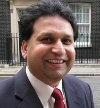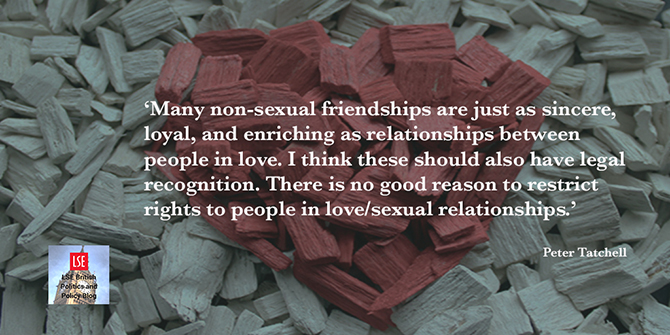 The controversy over the relationship between journalists and politicians has prompted the Lincoln School of Journalism’s Barnie Choudhury to question whether, as a journalist, he has ever stepped over that ethical line reporters know they should never cross, and what the nature of the relationship between politicians and the press should be.
The controversy over the relationship between journalists and politicians has prompted the Lincoln School of Journalism’s Barnie Choudhury to question whether, as a journalist, he has ever stepped over that ethical line reporters know they should never cross, and what the nature of the relationship between politicians and the press should be.
I bumped into Gerry McCann at our local cinema recently. Four years ago, Dr McCann would never have thought he’d have to deal with complete strangers on this basis. His was the world of saving lives through the “assessment and management of coronary artery disease, heart failure, cardiomyopathy and valvular disease”. Now his name is known for other reasons. His distinctive Scottish burr still has a certain dignity and surprisingly, despite his ordeal of a missing child, a public friendliness.
I did report on the McCanns. Of course I did. I knocked on their door in the hope that I could get a scoop. And had I still been a journalist, I would have tried to get a newsline today, I guess. But I just wanted to let him know that as a parent of an only daughter I wished his family and he all the luck in the world and hoped they’d one day be reunited with Madeline.
Bumping into Dr McCann got me thinking how I’ve operated as a journalist in the past. I figured my best stories were found by cultivating and nurturing contacts and developing a lasting relationship. But then had I crossed the line by having dinner at their home while still potentially having to report on them? When does having a meal with a contact become a conflict of interest? Surely, it’s just one way we find our stories and check out one another’s credentials, sometimes rather robustly? A mating ritual, if you will. It’s become such a big deal today because, on the face of it, David Cameron, Boris Johnson and others have crossed some ethical Rubicon.
Take the former Labour Mayor of London, Ken Livingstone. Speaking on Five Live’s Sunday Breakfast show Ken said that Boris had had five dinners and lunches with News International people in the past eighteen months. Ken questioned:
Are we asked to believe they never discussed the fact the police were investigating them and the phone hacking scandal?
It would have been more persuasive had Ken not admitted moments earlier that he, along with a dozen others, had dinner with James Murdoch at a Labour Party conference and talked about, wait for it, climate change. In Ken’s view it’s about the location of the meal. I’m not convinced. Even in public places, under public scrutiny, you can still do deals.
Doing deals was something Lord (Kenneth) Baker, the former Education Secretary hinted at on Radio 4’s Week in Westminster. He was asked to comment on the relationship between politicians and journalists:
You can’t have a satisfactory relationship. All journalists I met, political journalists, have really been piranha fish. They’re feeding upon information and however close the relationship may be, however friendly you may feel, that you may have a relationship with a journalist, or with Murdoch or with Beaverbrook in his old days, or no doubt with Northcliffe, at the end of the day, they look upon you as news fodder.
I was struck by two things he said: supping with the enemy has always been a recreational past time; and how wrong he was about journalists. Some of us keep so many secrets. Some of us argue passionately and can change minds in private. And most of us know when we’ve crossed that line, when we stop being detached. I interviewed Kenneth Baker a few times, when he was in Margaret Thatcher’s government but would never thought of myself as a piranha or he as fodder. Mind you I never had supper with him at his home. Opportunities missed.
The MP Frank Field had a point I think when he said on Radio 4:
One of the great powers in this land is the Fourth Estate; the media. Prime Ministers and their senior colleagues must get the right relationship with that Fourth Estate. I believe in the independence they ought to maintain from the Fourth Estate.
How sage his words but how very unrealistic. No matter what David Cameron and others decide and legislate there will always be a deep seated relationship between politicians and the press. Nothing will really change. It’ll only become cleverer and more covert. Perhaps all we can hope for is that when we sup together we both use very long spoons.
Please read our comments policy before posting.






